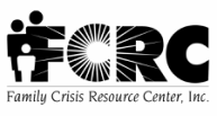|
Survivors dealing with intimate partner violence face a multitude of barriers when trying to end the relationship and find safety or support. The offender in the relationship often holds a great deal of power and control over the victim and thus limits freedoms and increases isolation from the outside world. If you have never called a crisis support line, it can seem a little intimidating. Speaking with a stranger about your most intimate and personal issues can be unsettling and make a person feel very vulnerable. However, we want to use this post to give you (or someone you care about) a better understanding of what to expect and hopefully alleviate some fears about reaching out for support. What Will Happen When I Call?
It is estimated that it may take at least seven attempts for a person to leave an abusive relationship. Reaching out to our crisis support line can be the first step to creating a plan to live a life free of violence. For some, they may prefer to speak with an advocate via text, for others, it may not be safe to make a phone call. Accessibility is about choices - and survivors who are managing their safety need choices. That is why we have three options to reach crisis support staff. 24/7 Hotline: 301.759.9244 Text: 301.970.4242 Webchat: rc.chat/fcrc
0 Comments
Part Two: Addressing Sexual Assault and Sexual ViolenceFor part two of our LGBTQIA series, we will be discussing sexual assault and sexual violence in the LGBTQIA community. Sexual violence happens in every demographic and within every community. The rates of sexual violence within the LGBTQIA community are at similar, if not higher rates (Human Rights Campaign HRC, 2020). One study completed by the National Coalition of Anti-Violence Projects (NCAVP), suggests that one in ten LGBTQIA survivors has experienced a sexual assault from their partners. When looking specifically at transgender people and bisexual women, about 50% will experience some form of sexual violence in their lifetime (HRC, 2020).
As with intimate partner violence, LGBTQIA victims/survivors often face stigma, barriers, marginalization, and violence motivated by homophobia, transphobia, and biphobia. Sometimes a sexual assault is used as a form of hate-motivated violence (HRC, 2020). Additionally, society places stereotypes on the LGBTQIA community, such as “this community is hypersexualized”, “they are deviant”, or “their relationships are not serious and won’t last”. Stereotypes, stigma, and discrimination often keep victims/survivors silent and can create an environment of victim blaming or shame surrounding the sexual violence. THE STATS Some quick facts from the National Coalition against Domestic Violence (NCADV) and the National Resource Center on Domestic Violence (NRCDV):
SUPPORT What can you do if someone you know has been sexually assaulted?
What can you do if you have been sexually assaulted?
You are not alone. We are here for you. Some additional resources: LGBT National Help Center National Hotline (1-888-843-4564) or National Youth Talkline (1-800-246-7743) https://www.glbthotline.org/ Forge (Serves Transgender and gender non-conforming survivors of domestic and sexual violence) https://forge-forward.org/ National Sexual Assault Hotline 1-800-656-HOPE (4673) Reference Links: http://www.mmgconnect.com/projects/userfiles/File/DCE-STOP_NOW/NCADV_LGBT_Fact_Sheet.pdf https://ncadv.org/blog/posts/domestic-violence-and-the-lgbtq-community https://static1.squarespace.com/static/566c7f0c2399a3bdabb57553/t/566c9be29cadb6bf7efc8e1e/1449958370563/It-Takes-A-Village-People-Web-Version.pdf |
Archives
February 2021
Categories |



 RSS Feed
RSS Feed
